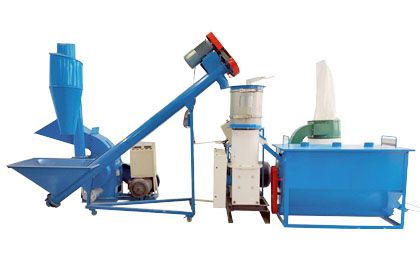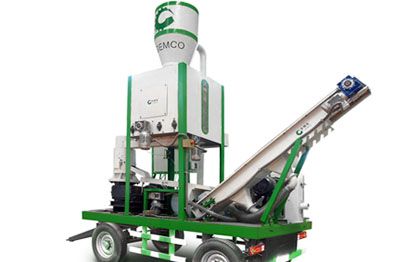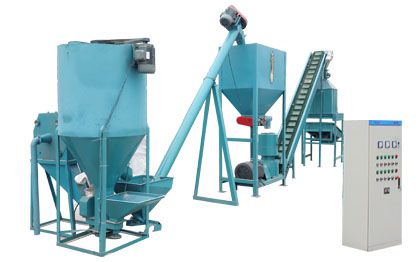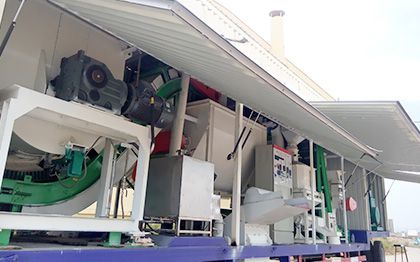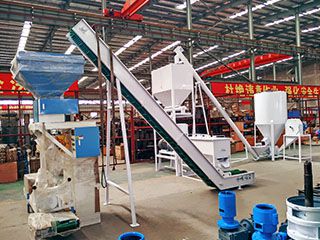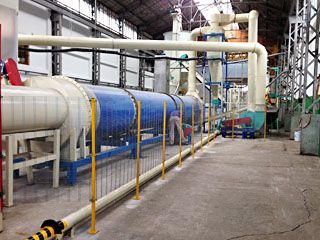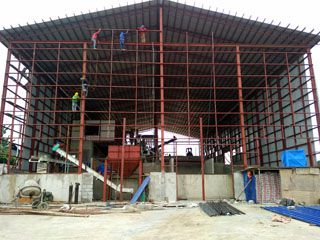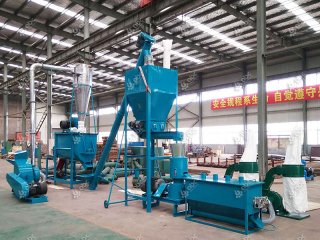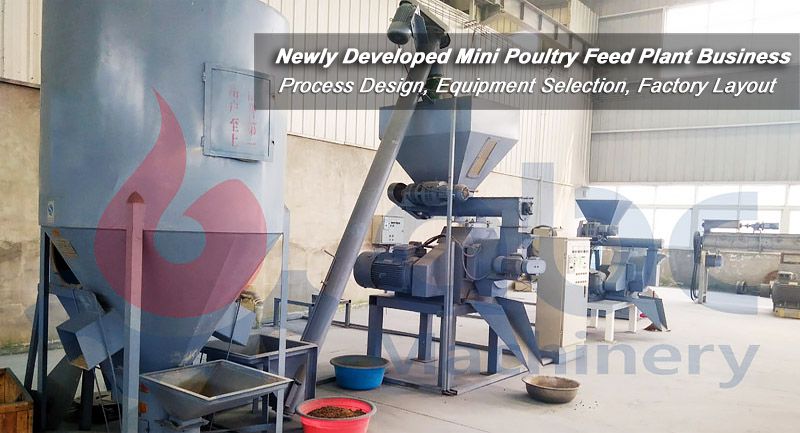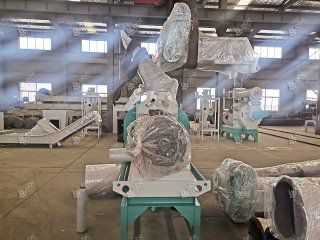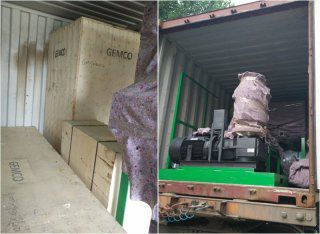Alfalfa (lucerne) has high grass yield, good palatability, and the highest nutritional value of pasture grass, so it is also known as the ‘king of pasture grass’. In this article, we will mainly take cattle alfalfa feed as an example to introduce the nutritional value and processing method of alfalfa feed. At the same time, we will also introduce the importance of alfalfa feed for sheep, chickens, horses and pigs. We hope to provide useful information to every alfalfa feed production investor.
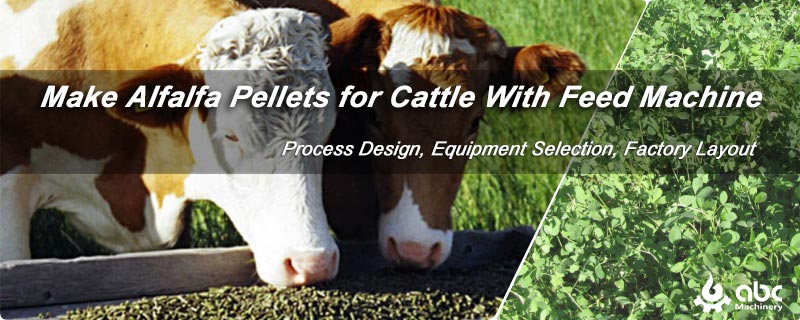
How to Make Cattle Feed Pellets from Alfalfa?
Alfalfa Feed Composition Data: Nutritional Benefits of Alfalfa
Are alfalfa pellets good for cattle? The answer is yes. Here are the nutrients in alfalfa.
- Protein Content up to 15%~25 %:
The protein content of alfalfa is generally between 15 and 25%, which is higher than that of the average cereal and other forage plants, which makes alfalfa a high-quality source of protein. The best time to harvest alfalfa is during the fertile bud stage, when the protein content is highest.
- Rich Variety of High-quality Amino Acids:
Besides being rich in lysine, isoleucine and other essential amino acids for humans and animals, alfalfa also contains some rare amino acids required by animals, which help to improve the amino acid completeness of cattle feeds, promote protein synthesis in animals, and improve the nutritional value of feeds.
| Methionine | Lysine | Valine | Threonine | Phenylalanine | Leucine |
|---|---|---|---|---|---|
| 0.32% | 1.06% | 0.94% | 0.86% | 1.27% | 1.34% |
- Crude Fiber Content is Moderate at 20%~30%:
The crude fiber content of alfalfa is 20% ~ 30%, which is a moderate level. A moderate amount of crude fiber helps to promote the digestive function of animals and maintain intestinal health.
- Rich in Vitamins and Minerals:
Alfalfa is rich in vitamins and minerals. The content of carotene is 94.60 mg, folic acid is 4.36 mg, biotin is 0.54 mg, iron is 230 mg/kg, manganese is 27 mg/kg, zinc is 16 mg/kg, copper is 9.8 mg/kg per kilogram of alfalfa hay, which can help to meet the growth and metabolism needs of animals.
- Low Carbohydrate Content:
Compared with some cereal feeds, alfalfa is relatively low in carbohydrates. This helps to control the energy intake of animals, avoiding obesity and related health problems.

Alfalfa Hay Feed & Alfalfa Cube Feed & Alfalfa Pellet Feed
Diverse Application of Alfalfa Feed: Which Animals Can Benefit?
What animals can you feed alfalfa? In general, alfalfa feed is suitable for many kinds of animals, such as cattle, sheep, rabbits, poultry and horses. Reasonable use of alfalfa in feed formulation can prepare nutritionally balanced feeds that provide good nutritional support for animal growth and production. In the following, we will analyze some poultry and livestock in detail.
- Benefits of Alfalfa Pellets for Cattle
What does alfalfa do for cattle? Alfalfa feed has different effects on beef and dairy cattle. (Read more about Cattle Feed Business Plan Guide>>)
Alfalfa Pellets for Beef cattle: The use of alfalfa in beef cattle diets can prevent yellowing of the beef color. However, alfalfa meal should not be used in large quantities in beef cattle fattening diets.
Alfalfa Pellets for Cows: Alfalfa feed for dairy cows can increase milk production and improve milk fat percentage, and can also increase the vitamin content of cow's milk.
Can I feed alfalfa pellets instead of hay?
Alfalfa pellet feeds are a convenient, nutritious alternative to hay. They are easy to produce and store and offer a convenient way to feed. However, they lack a chewing process compared to alfalfa forage and may cause a small number of dental problems when used as a single feed for a long period of time. To solve this problem, they can be fed with other fresh forages during the period when they are harvested to keep the animals' teeth healthy.
- Benefits of Alfalfa Pellets for Sheep/Goats:
Alfalfa used in sheep fattening feed can significantly increase daily weight gain and reduce sheep stink.
- Benefits of Alfalfa Pellets for Pigs
Alfalfa added to fattening pig diets will increase carcass leanness and meat tenderness.
- Benefits of Alfalfa Pellets for Chickens
Poultry takes laying hens and broilers as an example. The large amount of lutein (240mg/kg) in alfalfa feed for chicken has positive effects. (Read more about Chicken Feed Business Plan Design>>)
Alfalfa Pellets for Broiler Chicken: alfalfa feed applied in broiler diets can significantly improve the color of the beak, claw and skin of chickens, which is bright yellow, as well as make the meat tasty and improve the commercial value. (Read more about Broiler Feed Processing Machien>>)
Alfalfa Pellets for Layer Chicken: Laying hens fed alfalfa diets produce eggs with darker yolks and increased vitamin content in the eggs.
Buying Alfalfa Pellet Machines for Production Lines at Low Cost
ABC Machinery, as animal feed processing machinery supplier, we understand the significance of alfalfa cattle feed processing and the potential of the alfalfa feed processing market. If you are interested in alfalfa feed production and want to start your alfalfa feed processing business plan, we will be happy to provide you with free help and support.
Factory Price Alfalfa Pellet Machine for Sale
Aniaml feed pellet machine is a machine to produce high quality alfalfa pellet feed. Alfalfa pellet mill is capable of efficiently processing large quantities of alfalfa hay into alfalfa granules that are easy to store, transport and use, improving feed utilization and quality consistency. The automatic feed pellet machine is easy to operate, saves manpower and time cost of alfalfa feed pellet plant, and is an important and indispensable equipment in modern animal feed mills.
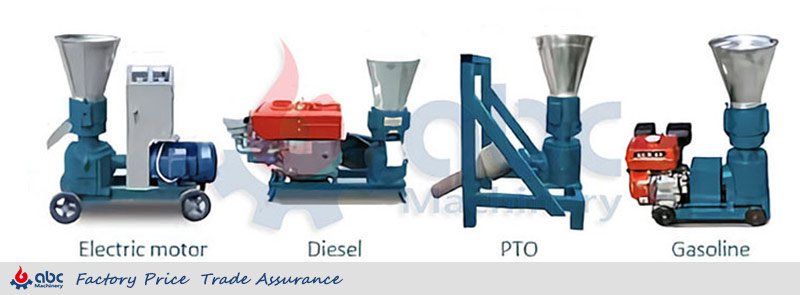
Small Alfalfa Pellet Making Machine for Sale
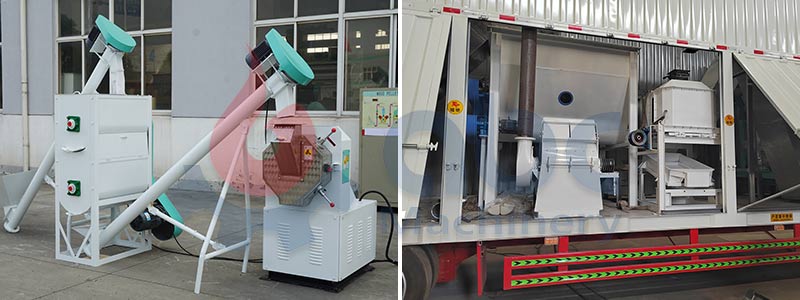
Small Cattle Feed Pellet Machine for Sale & Mobile Cattle Feed Machine for Sale
complete Alfalfa Pellet Production Line for Sale
Our alfalfa pellet production line stands at the forefront of the industry, providing reliable animal feed production solutions. Adopting advanced feed production process and technology, our cattle feed production line is capable of high efficiency automated production, and each process from raw material processing to finished feed product packaging is strictly controlled to ensure that the pellet feed produced is rich in nutrients and stable in quality. (Learn more about Cattle feed Pellet Production Process>>)
When making alfalfa pellet feed, dried alfalfa is usually used. This is because dried alfalfa is easier to handle in alfalfa pelleting machines, and the drying process helps prevent the growth of mold and bacteria, maintaining the quality and long-term shelf life of the feed.
Alfalfa Feed Manufacturing Process for Cattle:
Harvesting alfalfa grass — Drying alfalfa grass — Crushing alfalfa grass — Ingredients — Mixing — Compacting — Drying Feed (optional) — Packaging
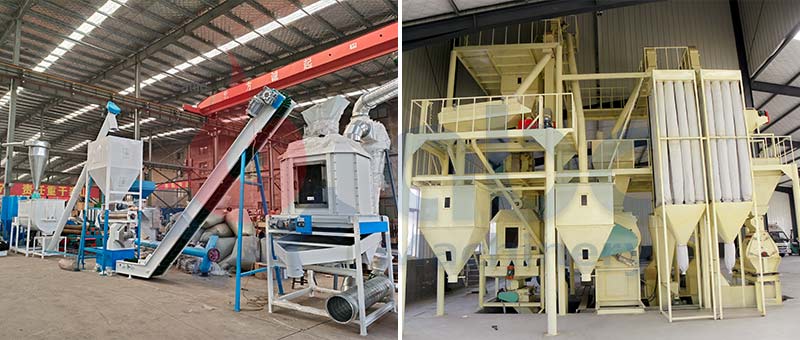
Alfalfa Pellet Processing Line & Alfalfa Pellet Production Plant
ABC Machinery's experienced team of professionals can advise you on complete aniaml feed line design, alfalfa feed processing equipment selection and cattle alfalfa feed production process optimization. We provide high quality animal feed processing mills, which are known for their high efficiency, energy saving, stability and reliability. We also provide technical training and after-sales service to ensure your alfalfa plants receive timely support. Contact us now to explore the alfalfa cattle feed processing market and create success together!
Alfalfa biomass pellet production line for fuel is very similar to feed production line, contact us for more information!
You may be interested in:


